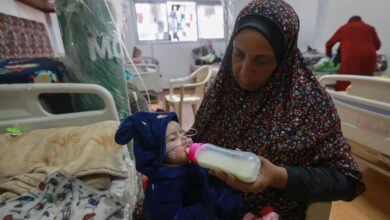Data shows that after Russian invasion, the birth rate in Ukraine has dramatically decreased
The war-torn country of Ukraine’s monthly birth rate has fallen to 16,000 births as of 2023. According to statistics gathered by the Ukrainian data provider OpenDataBot, Ukraine was reporting up to 23,000 births each month before the Russian invasion in February of last year.
According to OpenDataBot, the birth rate in Ukraine has decreased by almost 7% during 2015, a significant decline. The situation has dramatically deteriorated since the Russian invasion, which ignited a full-fledged conflict and a large-scale refugee flight from the nation. Since the commencement of the conflict, the birthrate in the country has decreased by 28%. In the first six months of this year, there were 38,324 fewer births in the nation than there were in 2021, the year before Russian soldiers entered into Eastern Ukraine and started the hostilities. The decline from 2021 to 2023 will be the steepest since Ukraine’s independence in 1991, and it will be followed by the decline that will be the second sharpest after Russia took Crimea in 2015.
“The birthrate in Ukraine was among the lowest in the globe. In March of this year, Brienna Perelli-Harris, a demography professor at the University of Southampton who researches fertility rates in Ukraine, spoke with National Public Radio (NPR). To emphasize this, the United Nations predicted that Ukraine’s population will drop by up to 50% by the year 2050 even before the conflict. Simply put, the war made things a lot, lot worse.
The frontline difficulties for the country include worn-out troops, faulty munitions, and a determined adversary. Ukraine is facing much more serious socioeconomic repercussions than the carnage on the front lines.
Everyone flees from every great fight. Ukraine’s, however, has been distinct. Millions of families have been torn apart by the battle in Ukraine, which means that even after the war, the country’s population does not seem to be doing well.
One of President Volodymyr Zelensky’s first actions, in addition to donning combat fatigues instead of a suit, was to issue a proclamation making it illegal for males between the ages of 18 and 60 to leave the nation. With the possibility of total annexation at the hands of a superpower, he had no choice but to be open about his intentions. He had to maintain a combat force inside the nation. Since then, the Ukrainian defense has been courageous and tenacious, but this edict has had significant effects on society and families.
The edict led to a one-sided exodus as refugees left the nation. Eight million Ukrainians have fled their country as refugees since the conflict started, and 90% of them are women and children. Not only were the couples now separated and unlikely to be reunited, but many of these exiles had no intention of going home, which portended dire consequences for the future of the country.
Anna Trofymenko, a psychotherapist from Kremenchuk, Ukraine, described a “divorce epidemic” to the New York Times. She went on to explain how it may be one of the war’s most lasting social effects, influencing dating habits, family dynamics, how a generation of Ukrainian children will be raised, and the trajectory of the population of the country for years to come.
Zelensky has several difficulties, and although the dropping birth rate is the earliest and most obvious sign of the grim future, it is not the only one. Additionally, data revealed that during the same time period in Ukraine, there were two to three times as many divorces as there were before the conflict.
Even before the conflict, Ukraine’s divorce rate was high. Experts point out that the tremendous magnitude of separation, more than the current high level of stress connected to the conflict, is what is causing it. The abrupt decrease in the birth rate is a good indicator of the divorce, together with the ongoing uncertainty about whether couples will be able to reunite or live together once again and the one-sided fatalities. Even if the country survives the war, the sum of the figures points to a significant issue in the future: it will have to face a familial reckoning.







